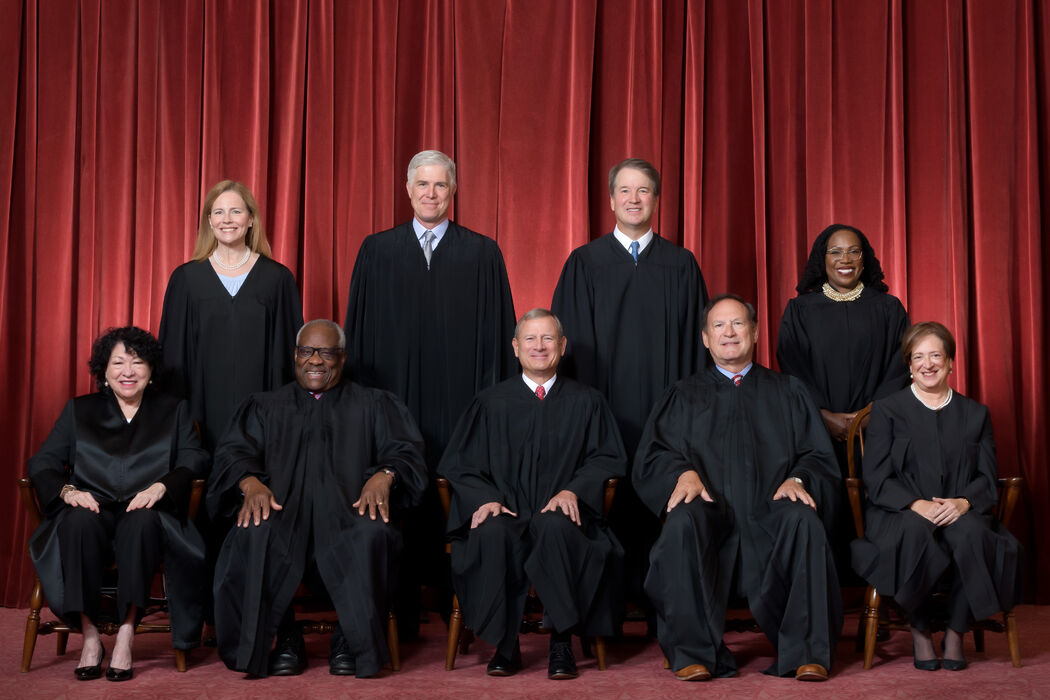Wally Taylor is the Legal Chair of the Sierra Club Iowa chapter.
In late June, six conservative U.S. Supreme Court justices overruled the Chevron doctrine in a case called Loper Bright v. Raimondo. The 40-year-old Chevron precedent had required courts to give deference to an administrative agency’s interpretation of the laws it administers and enforces.
This may sound like an issue only a lawyer would care about. But it has major implications for how government functions.
Executive branch agencies are supposed to protect the public and the environment. Congress writes the laws the agencies are supposed to administer and enforce with a broad brush; the legislature leaves to the agencies the job of filling in the details. The Chevron doctrine said that when an agency action was challenged in court, the court must defer to the agency’s interpretation of how to fill in those details.
The Chevron Doctrine comes from a U.S. Supreme Court case in 1984, Chevron v. Natural Resources Defense Council. Even though progressives have always treated the Chevron Doctrine as letting administrative agencies use their expertise to vigorously protect the public and the environment, the original Chevron case did just the opposite.
In that case, the Natural Resources Defense Council had challenged an Environmental Protection Agency decision that allowed Chevron and similar bad actors to skirt the intent of the Clean Air Act. In a decision that became the Chevron Doctrine, the court deferred to the EPA and Chevron won. As an ironic aside, the EPA administrator at that time was Anne Gorsuch, President Ronald Reagan’s appointee and the mother of current Justice Neil Gorsuch, one of the primary enemies of Chevron deference.
The fallacy in the conservatives’ dislike for the Chevron doctrine is that they assume administrative agencies always overstep their authority in regulating businesses. In fact, more often than not, the agencies become captured by the entities they are supposed to be regulating. That has been true even during the administrations of Democratic presidents. So the Chevron doctrine often allowed agencies to shirk their duties.
What will be the fallout from the Loper Bright decision? Its author, Chief Justice John Roberts, said that under the federal Administrative Procedure Act, it is up to courts, not agencies, to determine what the law says and how it should be applied. The chief justice did say that in making that determination a court can refer (not defer) to an agency’s expertise. A court can also be informed about the technical aspects of the issue by the evidence and arguments of the parties. Finally, Chief Justice Roberts observed that Congress could give the agency discretion to interpret the law by clearly stating in the law that it is giving the agency that discretion.
Given that federal agencies often don’t do their jobs, the impact of the Loper Bright decision may not be so bad. It will be up to attorneys representing public interest organizations and citizens to present evidence and arguments to persuade the courts to require the agencies to protect the public and the environment. We also need to lobby Congress and candidates for Congress to agree to specifically require agencies to interpret the laws in order to carry out their purpose.
One final note: the Loper Bright decision applies only to federal agencies. For Iowa state agencies, the law already restricts deference to agency decisions unless the legislature has clearly granted to the agency the discretion to interpret the law.
So it has always been difficult to challenge agency action (or inaction), but now it might just be easier than before.


4 Comments
As to your conclusion...
I dunno.
It seems your piece was explaining how we were already frequently, perhaps more often than not, losing to the rape the environment dominionist “heads I win, tails you lose” position.
And now we STILL are, but from a different legal angle, one that allows us to prolong the suffering by making it easier to challenge stuff that ultimately will not go in the environment’s favor when it reaches the rape the environment dominionist Supremes.
Not all cases are taken up by the Supremes, though, so there’s that. But they do approve of rape, so I expect ’em to remain eager to confirm that as often as they can manage.
What am I missing?
Fly_Fly__Fly_Away Wed 17 Jul 2:03 PM
My conclusion
is that federal agencies will no longer be able to rely on court deference to agency discretion in not protecting people and the environment. And very few cases get to the Supremes.
Wally Taylor Wed 17 Jul 3:40 PM
It will be interesting to watch.
Thanks for your insight. I’d not thought of it that way; had only read the doom and gloom pieces.
Fly_Fly__Fly_Away Wed 17 Jul 4:20 PM
I appreciate this essay and the comments on it.
These days, I take whatever I can get when it comes to possible good news re the environment.
PrairieFan Wed 17 Jul 7:29 PM